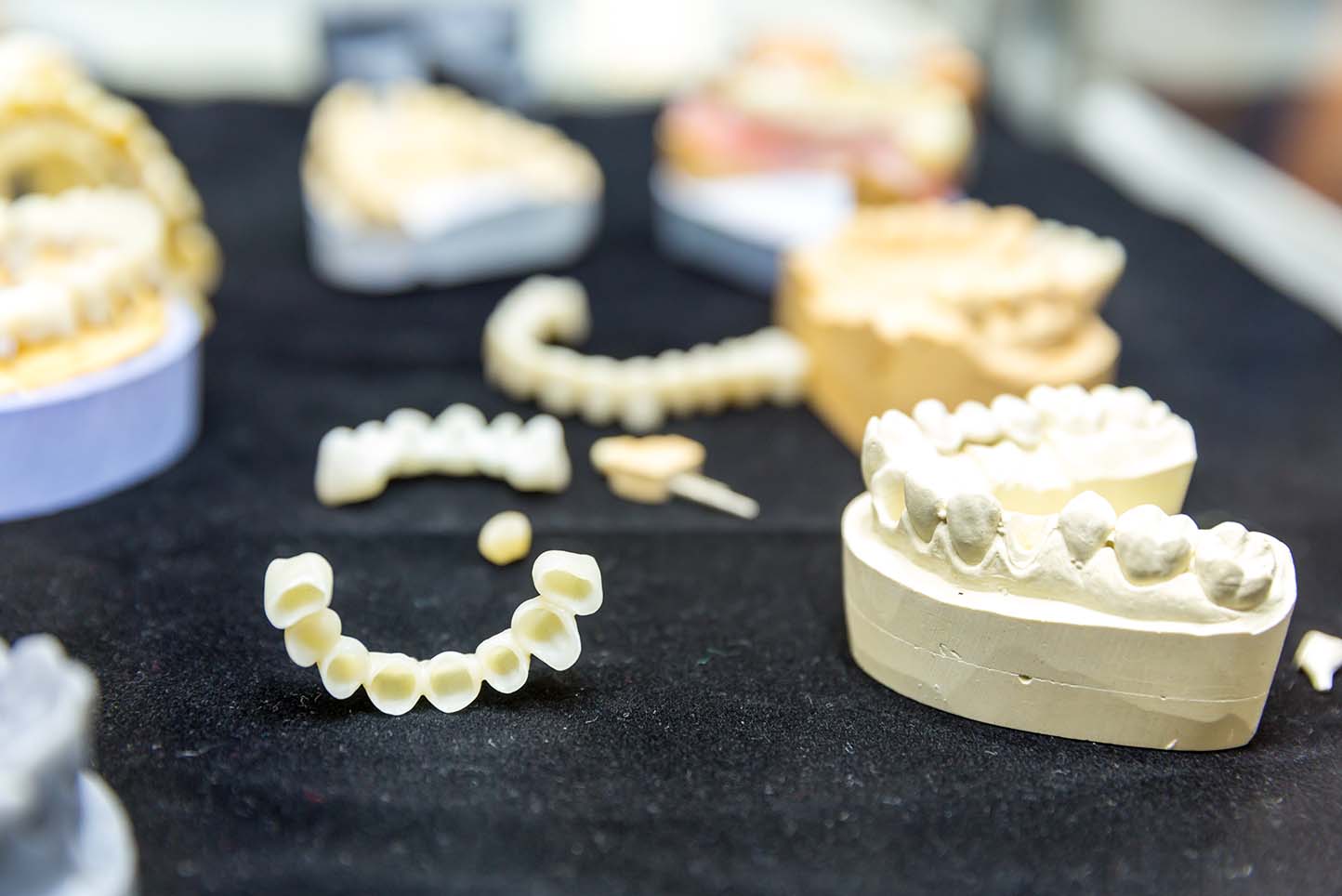Dental bridges serve as a valuable treatment option for individuals with missing teeth. Designed to restore not only the aesthetics but also the functionality of a natural smile, a common question often asked is, “how long do dental bridges last?”
Understanding the factors that influence the lifespan of dental bridges and the various types available is crucial in making informed decisions about one’s oral health care.
What Are Dental Bridges?
Dental bridges are tooth restorations that replace one or more missing teeth in the mouth. They use the surrounding teeth as anchors to bridge the gap where the teeth are missing. Dental bridges can be made from different materials, such as gold, alloys, porcelain, or a combination of these.
They are cemented onto the natural teeth or implants surrounding the empty space, providing a natural look and feel. Besides aesthetic improvement, bridges also help restore the ability to chew and speak properly and prevent remaining teeth from drifting out of position.
What Are the Types of Dental Bridges?
1. Traditional Bridges
These standard bridges are usually anchored to natural teeth or dental implants on either side of the gap left by a missing tooth. They are typically made from ceramic or porcelain fused to metal, providing a close mimic of natural teeth. Traditional bridges can restore your smile by filling in the missing teeth area.
2. Implant-Supported Bridges
Rather than being supported by natural teeth, implant-supported bridges are held in place by dental implants. This provides a stable and long-term option for replacing missing teeth. Implant-supported bridges offer enhanced durability and closely replicate the feel and function of natural teeth.
3. Cantilever Bridges
Cantilever bridges differ from traditional bridges in that they are only anchored on one side rather than on both sides of the gap. They are used when adjacent teeth are on only one side of the missing tooth or teeth. While they are a great option in some instances, careful consideration should be given to the force distribution on the remaining teeth, as this may lead to potential issues.
4. Temporary Bridge
Temporary bridges act as short-term options while permanent bridges are being produced. They are typically made from acrylic and fill in the gap during the waiting period for the final prosthesis. Temporary bridges provide aesthetic and functional benefits and are usually replaced with a permanent bridge within a few weeks or months.
Pros and Cons of Dental Bridges
Dental bridges are a beneficial dental solution for those with missing teeth, improving both function and appearance. However, like any dental procedure, they have advantages and disadvantages to consider before opting for this treatment.
Pros of Dental Bridges
- They restore the ability to chew correctly, which improves digestion.
- Dental bridges maintain the shape of your face by preventing the sagging of muscles around the missing tooth area.
- They prevent other teeth from shifting and becoming misaligned due to the gap.
- Dental bridges enhance speech that may be distorted due to missing teeth.
- They carry aesthetic benefits by improving the appearance of a person’s smile.
Cons of Dental Bridges
- They can potentially damage natural teeth, particularly if the bridge fits poorly.
- Poorly fitted bridges might lead to infections around the dental crowns.
- There can be decay in the abutment teeth, which need to be capped to support the bridge.
- Traditional and cantilever bridges require alteration of the adjacent healthy teeth.
- Bridges may need replacements or repair after a certain period, especially if oral hygiene is not adequately maintained.
How Long Do Dental Bridges Last on Front Teeth?
Typically, dental bridges last between 5 and 15 years, with some lasting up to 30 years. However, the question “How long do dental bridges usually last?” is a subjective question as their longevity greatly depends on several factors:
Oral Hygiene and Maintenance
The lifespan of dental bridges heavily depends on maintaining proper oral hygiene and regular dental check-ups. Maintaining an effective oral routine, including brushing at least twice a day, flossing regularly, and rinsing with mouthwash, is instrumental in preventing tooth decay and gum disease. These practices ensure the durability of the dental bridge and the overall health of your teeth and gums.
Type of Bridge
The longevity of dental bridges also depends on the type of bridge that you have. Traditional bridges and cantilever bridges tend to have a shorter lifespan than implant-supported bridges due to the difference in the amount of support they have. It is essential to understand these differences while choosing the type of bridge that suits your oral health condition.
Material Quality
High-quality materials used in the dental bridge’s construction, such as porcelain, ceramic, zirconia, or composite resin, can significantly increase the bridge’s durability. These materials are resistant to staining, chipping, or breaking, contributing to a longer lifespan of the dental bridge. Therefore, the quality of the material should be a key consideration when choosing dental bridges.
Diet and Lifestyle
Certain dietary habits, such as consuming sugary, acidic, rigid, or sticky foods, can exert extra pressure, increase the risk of cavities, and cause damage to dental bridges. In contrast, a well-balanced diet and low sugar consumption can contribute positively to the longevity and overall health of your bridge and other teeth. Therefore, besides good oral hygiene, a healthy lifestyle and proper diet can significantly influence the lifespan of a dental bridge.
Adjacent Teeth and Abutment Teeth
The condition of the adjacent and abutment teeth provides the foundational support for the dental bridge, which directly impacts its longevity. If these teeth are healthy, they can provide sturdy support for the bridge, prolonging its lifespan. Regular visits to a dentist and suitable at-home care can help maintain these crucial supporting teeth in good health.
Maintenance and Care Tips for Dental Bridges
Maintaining your dental bridges is crucial for their longevity and preserving your oral cavity’s health. Here are some practical care tips to help keep your dental bridge in its best shape for a more extended period:
- Flossing Regularly. Flossing should be an indispensable part of your oral hygiene routine if you have dental bridges. You should use a floss threader to clean under the false tooth and around the abutment teeth, removing any food particles or bacteria build-up. Regular flossing prevents tooth decay and gum disease that can compromise the health of the abutment teeth and the longevity of your bridge.
- Maintaining Proper Oral Hygiene. Proper oral hygiene is crucial to extend the lifespan of your dental bridge. This includes brushing your teeth at least twice daily with fluoride toothpaste and rinsing your mouth with an antibacterial mouthwash. Apart from keeping your dental bridge clean, these practices reduce plaque build-up and prevent tooth decay and gum disease, supporting the overall health of your mouth.
- Avoiding Certain Foods. Certain foods, particularly those that are sticky or hard, may loosen or damage your dental bridge. Therefore, avoiding these types of foods or consuming them carefully is recommended. At the same time, incorporating more teeth-friendly foods into your diet can help sustain the health and longevity of your dental bridge.
- Regular Dental Cleaning and Check-Ups. Routine dental check-ups allow your dentist to monitor the condition of your dental bridge, abutment teeth, and the overall health of your mouth. Professional cleanings, usually recommended every six months, can help eliminate plaque or tartar that regular brushing or flossing might have missed. Regular visits to your dentist can ensure any potential issues are spotted early before they affect the health of your dental bridge or surrounding teeth.
The more diligent you are in caring for your dental bridge, the longer it will serve you. A well-cared-for dental bridge can significantly enhance your quality of life, boosting your confidence with a radiant, functional smile.
Enhance Your Smile With Dental Bridges—Book Your Consultation Today
Understanding the pros, cons, and how long dental bridges last can help you gauge their worthiness. Your diligent oral care, adherence to a healthy diet, and regular dental visits will broadly define your bridge longevity. It’s crucial to consult your dental professional about your treatment options regularly to maintain your overall oral health and keep your smile radiant.
If you’re considering dental bridges or other dental services, remember your goal of achieving healthy teeth and a beautiful smile is well within reach. Contact us today, and let our professional team assist you in making informed decisions about your oral health.






